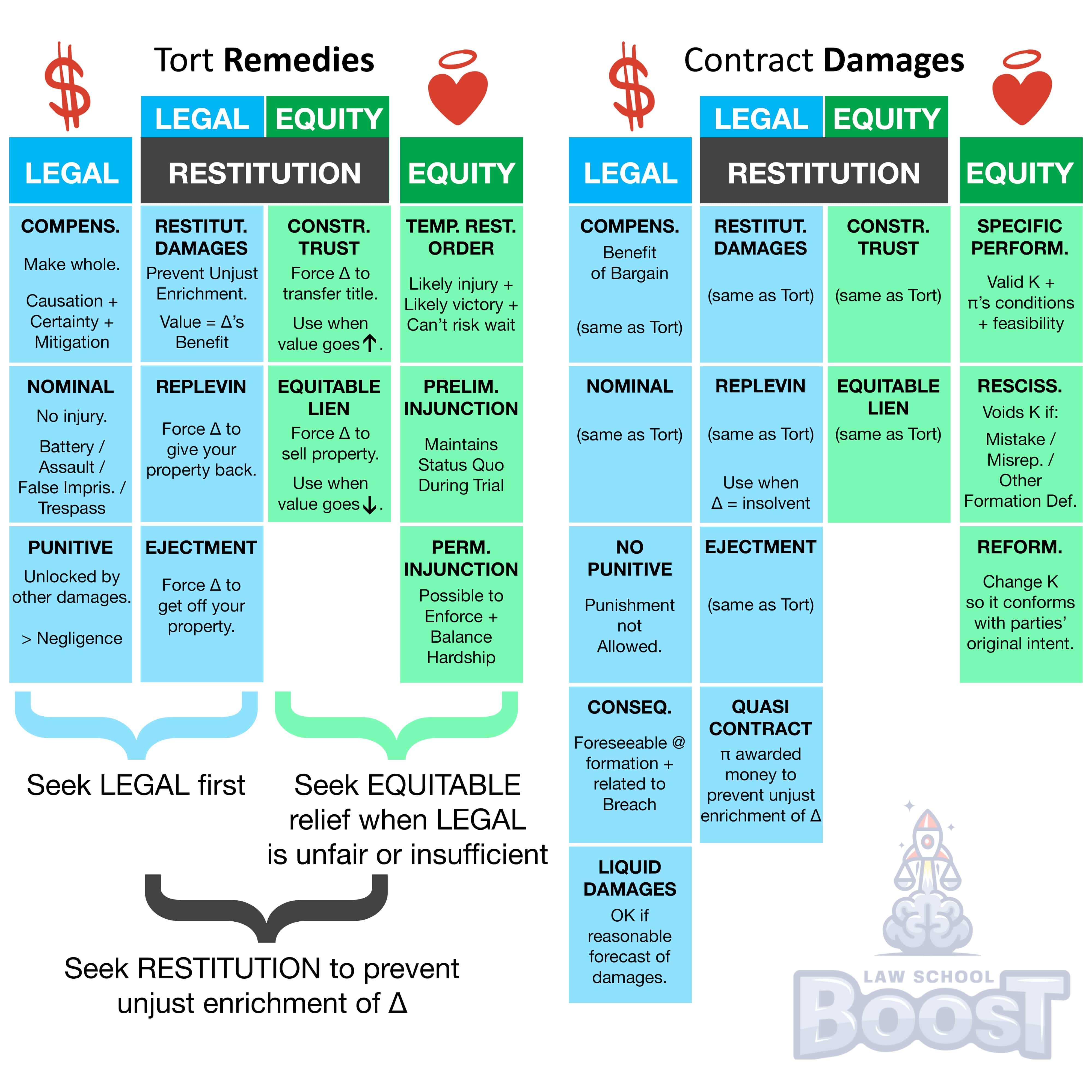🏥
Remedies • Contract - Equitable Remedies
REM#057
Legal Definition
If property is unique, the plaintiff could not replace the item with money damages. All real property is considered unique—no matter what—and sellers can get specific performance even though all they receive in return is money (which is not unique).
Plain English Explanation
When deciding if paying money is enough to make up for not following through on a deal, it's important to see if the item involved is one-of-a-kind. If it's unique, then just giving money won't replace the item. All land or buildings (real property) are always seen as unique. So, if someone sells their land or house, they can ask the buyer to specifically follow through with the deal.
Hypothetical
Hypo 1: Bob agrees to sell Sam a rare, one-of-a-kind painting. Later, Bob changes his mind and offers Sam's money back instead. Result: The rule applies because the painting is unique. Sam can insist on getting the painting and not just the money.
Hypo 2: Bob sells a piece of land to Sam. After the agreement, Bob tries to back out, offering Sam a sum of money instead. Result: The rule applies because all real property (land) is unique. Sam can demand that Bob follows through with the sale of the land.
Hypo 3: Bob promises to sell Sam a limited edition car, of which only 10 exist in the world. Bob later decides to keep the car and offers money to Sam. Result: The rule applies because the car is nearly unique due to its limited edition. Sam can ask for the car itself, not just the money.
Hypo 4: Bob agrees to sell Sam a regular, mass-produced chair. After the agreement, Bob changes his mind and offers money instead. Result: The rule does not apply here because the chair is not unique. Sam would likely have to accept the money as compensation.
Hypo 2: Bob sells a piece of land to Sam. After the agreement, Bob tries to back out, offering Sam a sum of money instead. Result: The rule applies because all real property (land) is unique. Sam can demand that Bob follows through with the sale of the land.
Hypo 3: Bob promises to sell Sam a limited edition car, of which only 10 exist in the world. Bob later decides to keep the car and offers money to Sam. Result: The rule applies because the car is nearly unique due to its limited edition. Sam can ask for the car itself, not just the money.
Hypo 4: Bob agrees to sell Sam a regular, mass-produced chair. After the agreement, Bob changes his mind and offers money instead. Result: The rule does not apply here because the chair is not unique. Sam would likely have to accept the money as compensation.
Visual Aids

Related Concepts
How does election of remedies affect a claim for rescission?
If a contract has a liquidated damages clause, is specific performance still an option?
What are common defenses to specific performance?
What are defenses to rescission?
What are equitable remedies in contract?
What are the defenses to formation?
What happens if a plaintiff is entitled to rescission but has already performed?
What is reformation?
What is rescission?
What is specific performance and when it is applicable?
What is the part performance exception to the Statute of Frauds?
What type of mutual mistake is sufficient for rescission?
When applying specific performance to a land purchase contract, what happens if a buyer breaches a "time is of the essence" clause with a forfeiture clause?
When applying specific performance to a land purchase contract, what happens if the quantity of land is in dispute?
When assessing reformation, what constitutes sufficient grounds?
When assessing specific performance, how do courts weigh feasibility of enforcement?
When assessing specific performance to acquire a unique piece of property, when is uniqueness tested?
When assessing specific performance, what must the status be of a plaintiff's contractual conditions?
When assessing specific performance, why are money damages sometimes an inadequate legal remedy?
When is personal property considered unique enough to trigger specific performance?
Will courts grant rescission for a unilateral mistake?


